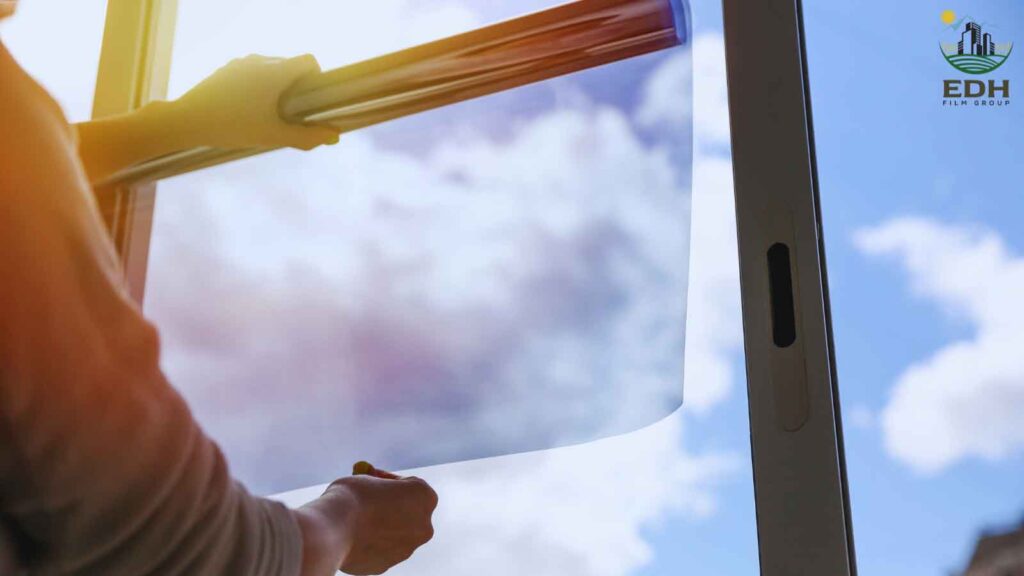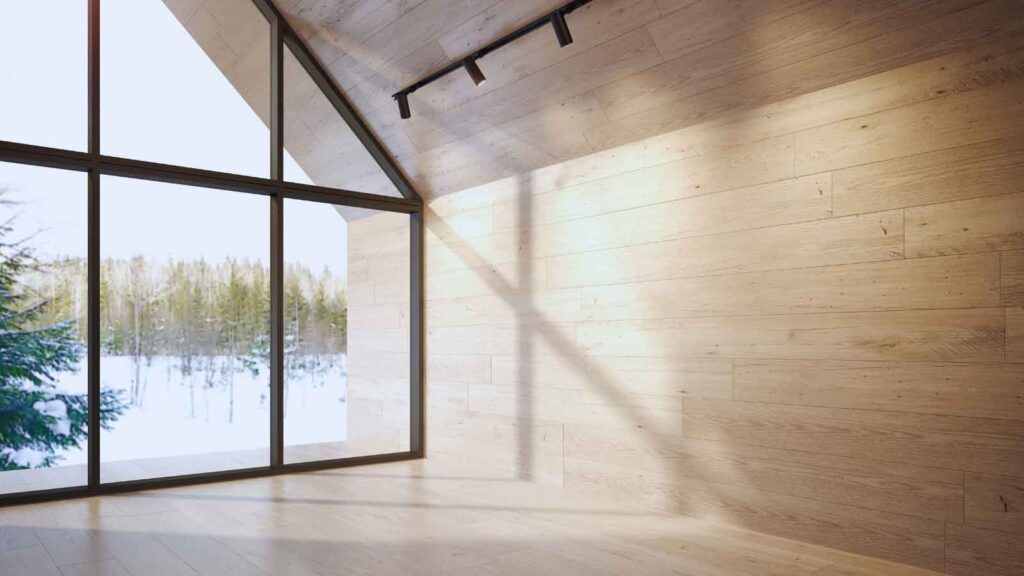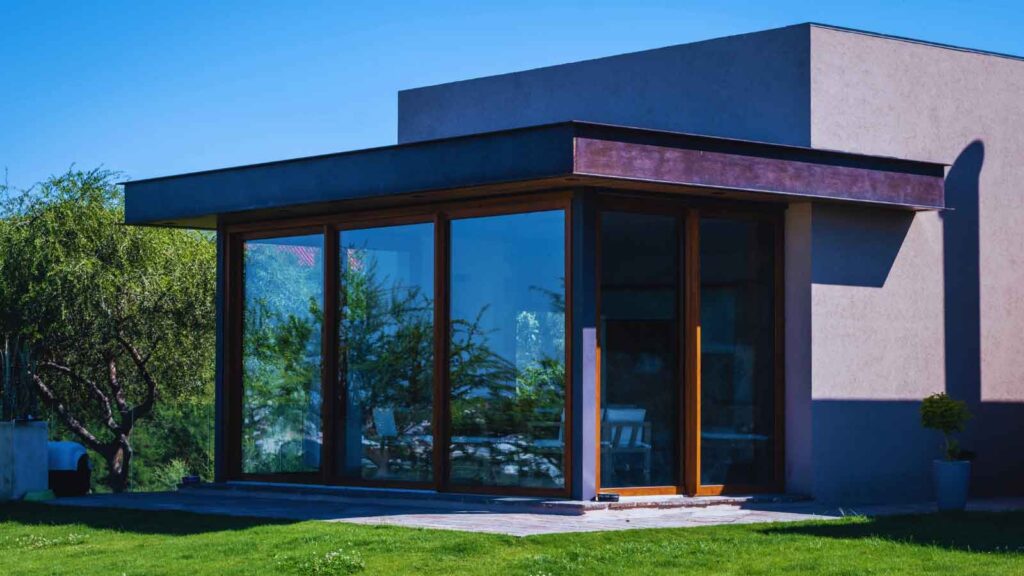Sunlight brightens our homes, but it also brings damaging ultraviolet (UV) rays that can harm both your health and your belongings. Constant UV exposure can lead to furniture fading, interior wear and even an increased skin cancer risk without protection. That’s where window tinting becomes a valuable solution. Investing in UV-blocking residential window tinting makes a measurable difference for homeowners seeking to preserve comfort, aesthetics and long-term value.
What Is UV Protection in Window Tinting?
UV protection in home window tinting refers to the ability of a window film to block ultraviolet radiation, specifically UVA and UVB rays, from entering your home through untreated glass. These rays are responsible for material degradation, including fading of hardwood floors, discoloration of fabrics and breakdown of adhesives and plastics. UVA rays penetrate deeper and accelerate skin aging, while UVB rays are associated with surface-level damage and sunburn.
High-quality solar film for home windows is engineered to intercept these rays before they enter your living space. Using a UV-filtering film maintains indoor clarity and brightness while significantly reducing damage caused by prolonged sun exposure.
How Does Window Tint Block UV Rays?
Window tint works through a multi-layer construction using optically clear polyester combined with UV-absorbing materials. These layers are designed to absorb or reflect harmful UV radiation before it passes through the glass. Some films, such as the 3M™ Prestige Series, achieve this without relying on dyes or metals, preserving visibility and aesthetics.
The film’s UV inhibitors are embedded at the molecular level to ensure consistent performance over time. These inhibitors allow residential window tinting to provide long-term protection even under high levels of sun exposure. Clear and tinted options are available depending on the level of light control and privacy you need.
How Much UV Can Tinting Block?
Premium-grade films can block up to 99 percent of UVA and UVB rays. This is the industry standard for high-performance window tinting products intended for residential use. Blocking this percentage of UV radiation helps extend the life of interior materials, preserve color vibrancy in furnishings and reduce health risks associated with sun exposure inside the home.
Even in rooms with expansive or south-facing glass, this level of protection limits the cumulative damage from daily sun exposure. Films with this rating are instrumental in homes with valuable furniture, wood flooring or sensitive electronics that degrade over time when exposed to UV light.
Why UV Protection Matters at Home
Ultraviolet radiation may be invisible, but its impact on your home is significant and long-term. Daily exposure to UV light slowly deteriorates interior surfaces and materials without a protective barrier. The result is not only cosmetic damage but also reduced functionality and shortened lifespan of your belongings. Window tinting provides a crucial defense, helping homeowners avoid costly repairs and replacements while also maintaining indoor comfort and air quality.
Residential window tinting is a proactive solution that helps protect your living environment from the silent but persistent harm caused by sunlight.
The Impact of UV on Interiors
Interior surfaces and décor are especially vulnerable to UV damage. Upholstered furniture fades unevenly. Wood loses its stain and luster. Artwork, photographs and window treatments begin to bleach, peel or deteriorate over time. These changes are irreversible and often go unnoticed until the contrast becomes visible.
By applying home window tinting, homeowners create a barrier that absorbs and reflects UV rays before they reach sensitive materials. This helps maintain the condition and color of furnishings, reduces premature wear and minimizes exposure-related deterioration. The longer your interiors are exposed without protection, the faster they degrade. Tinting significantly slows this process.
Can Window Tint Reduce Fading?
Yes. Scientific research shows that UV radiation is responsible for approximately 40 percent of interior fading. The rest comes from visible light and solar heat. Solar film for home windows is engineered to address all three contributors. It filters out nearly all UV rays, reduces glare and blocks a portion of heat gain, working in combination to mitigate the primary causes of fading.
When applied correctly, home window tinting can extend your indoor finishes’ visual and structural integrity. This maintains appearance and preserves the investment made in furniture, flooring and décor. Homeowners get measurable protection without the need to compromise natural light or visibility.
Window Tint Benefits Beyond UV Protection
UV filtration is just one part of the value that window tinting brings to a home. Modern films are engineered to deliver layered performance, protecting interiors while actively improving comfort and energy use. These benefits make residential window tinting a smart, multi-functional investment for long-term living quality and cost control.
Homeowners installing window films protect surfaces and create a more efficient, comfortable and functional indoor environment.
Does Tinting Improve Indoor Temperature?
Home window tinting reduces infrared heat gain, stabilizing indoor temperatures and preventing hot spots that overwork your HVAC system. The process of home window tinting involves evaluating each space, selecting the right film and ensuring precise installation for maximum heat rejection and year-round comfort, all without blocking natural light.
Energy Efficiency and Cost Savings
The reduction in heat transfer does more than improve comfort. It also improves energy performance. Solar film for home windows can reject up to 78% of the sun’s heat, directly reducing the workload on your air conditioning system.
This leads to measurable energy savings. Homes with window film often see noticeable reductions in cooling costs, especially during peak summer months. Because film is applied to existing glass, it offers a cost-effective alternative to full window replacement while still delivering year-round thermal performance improvements.
By choosing residential window tinting, homeowners gain better temperature control, lower utility bills and less wear on heating and cooling equipment without sacrificing natural light or aesthetics.
Types of Window Films for UV Protection
Not all films perform the same way and selecting the right type depends on more than just blocking UV rays. Each film varies in how it handles visibility, reflectivity, heat control and added features like security. At EDH Film Group, we guide homeowners through the most effective solar film for home windows based on their goals and the unique challenges of each space. From preserving open views to reinforcing vulnerable glass, there is a specialized film for every need.
Are There Different UV Tint Types?
Yes, UV-blocking films fall into several categories, each suited for specific use cases:
- Reflective Films: These films are designed to reflect both solar heat and UV rays. They are highly efficient at reducing glare and interior heat buildup, making them ideal for sun-exposed areas like large living rooms or upper-floor windows. However, they create a mirrored look during the day and do not provide privacy at night.
- Non-Reflective Films: These films have a tinted appearance without a mirror-like finish. They still offer strong UV and heat rejection but with a more neutral look. This makes them a common choice for homeowners who want subtle protection without altering the appearance of their windows.
- 3M™ Prestige Series: This is one of the most advanced film options available. It uses multiple layers of nanotechnology to block up to 99% of UV rays while maintaining high clarity and very low reflectivity. Prestige films are beneficial for preserving both aesthetics and performance in sun-filled spaces.
- Security Films with UV Filtering: Products like the 3M™ Ultra Series combine UV protection with additional security features. These films are micro-layered for tear resistance and help hold shattered glass in place during impacts or forced entry. They are ideal for ground-floor windows and sliding doors that require both safety and sun control.
Each film option provides a different combination of benefits. Whether your priority is heat reduction, visibility or safety, home window tinting can be customized to meet your home’s demands.
Importance of Professional Installation and Durability
Even the best home window tinting film won’t perform to its full potential without expert installation. Quality products require precision and partnering with an experienced provider like EDH Film Group ensures that both the application and long-term durability meet the highest industry standards. Every detail affects the outcome, from proper glass preparation to precise film placement.
Is Professional Window Tinting Necessary?
Absolutely. Incorrectly installed film can lead to bubbling, peeling or misalignment, compromising effectiveness and shortening the film’s lifespan. EDH Film Group eliminates these risks with trained technicians who follow a proven process for clean, accurate and secure applications. Our team evaluates each window, cleans it thoroughly and installs your chosen film with precision tools and techniques. This professional attention enhances appearance and ensures complete UV protection and long-term performance.
How Long Does UV Tinting Last?
UV window films can last over a decade with proper installation and care. Most high-quality films, such as those in the 3M™ lineup, maintain their performance for 10 to 15 years or more. EDH Film Group installs solar film for home windows backed by 3M™’s manufacturer warranties that cover UV rejection, clarity and adhesion. These films are engineered to resist discoloration, bubbling and edge lifting. Once installed, they require little maintenance beyond occasional cleaning and provide years of consistent protection against heat and UV exposure.
Contact EDH Film Group today for a Complimentary Estimate
Protect your home with professionally installed window films that are built to last. Whether you’re looking for UV protection, heat control or added safety through home window security film, EDH Film Group delivers proven results backed by 75+ years of combined industry experience and certified 3M™ expertise.
Contact EDH Film Group today for a complimentary estimate and receive trusted guidance on the proper residential window tinting for your space.





